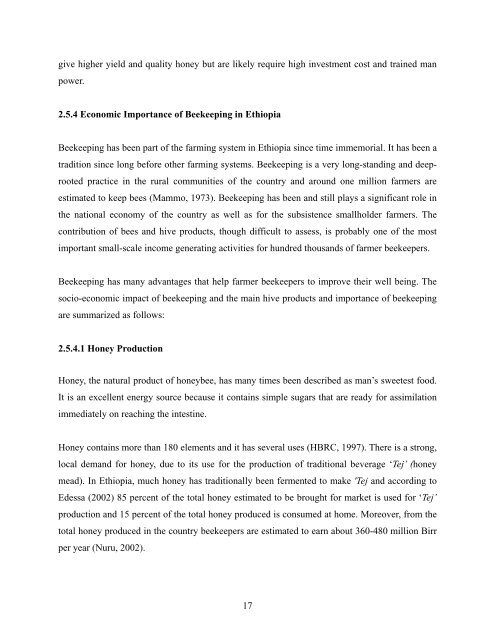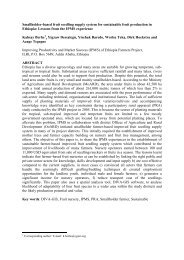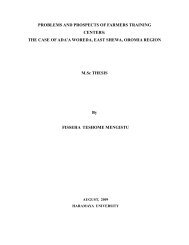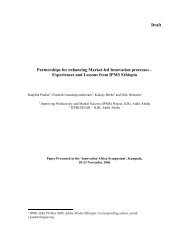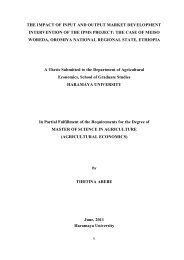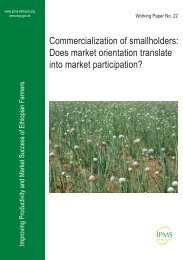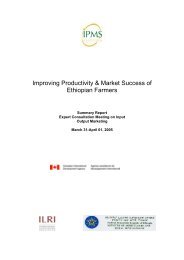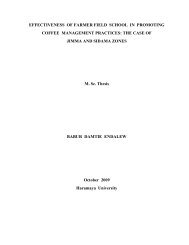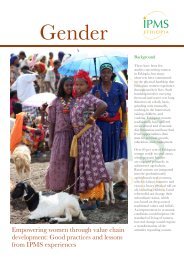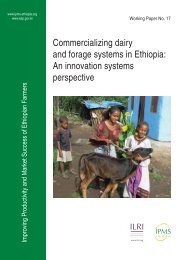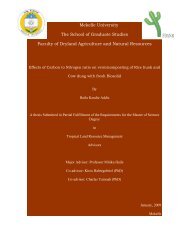Honeybee Production and Marketing Systems, Constraints - IPMS ...
Honeybee Production and Marketing Systems, Constraints - IPMS ...
Honeybee Production and Marketing Systems, Constraints - IPMS ...
- No tags were found...
You also want an ePaper? Increase the reach of your titles
YUMPU automatically turns print PDFs into web optimized ePapers that Google loves.
give higher yield <strong>and</strong> quality honey but are likely require high investment cost <strong>and</strong> trained manpower.2.5.4 Economic Importance of Beekeeping in EthiopiaBeekeeping has been part of the farming system in Ethiopia since time immemorial. It has been atradition since long before other farming systems. Beekeeping is a very long-st<strong>and</strong>ing <strong>and</strong> deeprootedpractice in the rural communities of the country <strong>and</strong> around one million farmers areestimated to keep bees (Mammo, 1973). Beekeeping has been <strong>and</strong> still plays a significant role inthe national economy of the country as well as for the subsistence smallholder farmers. Thecontribution of bees <strong>and</strong> hive products, though difficult to assess, is probably one of the mostimportant small-scale income generating activities for hundred thous<strong>and</strong>s of farmer beekeepers.Beekeeping has many advantages that help farmer beekeepers to improve their well being. Thesocio-economic impact of beekeeping <strong>and</strong> the main hive products <strong>and</strong> importance of beekeepingare summarized as follows:2.5.4.1 Honey <strong>Production</strong>Honey, the natural product of honeybee, has many times been described as man’s sweetest food.It is an excellent energy source because it contains simple sugars that are ready for assimilationimmediately on reaching the intestine.Honey contains more than 180 elements <strong>and</strong> it has several uses (HBRC, 1997). There is a strong,local dem<strong>and</strong> for honey, due to its use for the production of traditional beverage ‘Tej’ (honeymead). In Ethiopia, much honey has traditionally been fermented to make 'Tej <strong>and</strong> according toEdessa (2002) 85 percent of the total honey estimated to be brought for market is used for ‘Tej’production <strong>and</strong> 15 percent of the total honey produced is consumed at home. Moreover, from thetotal honey produced in the country beekeepers are estimated to earn about 360-480 million Birrper year (Nuru, 2002).17


